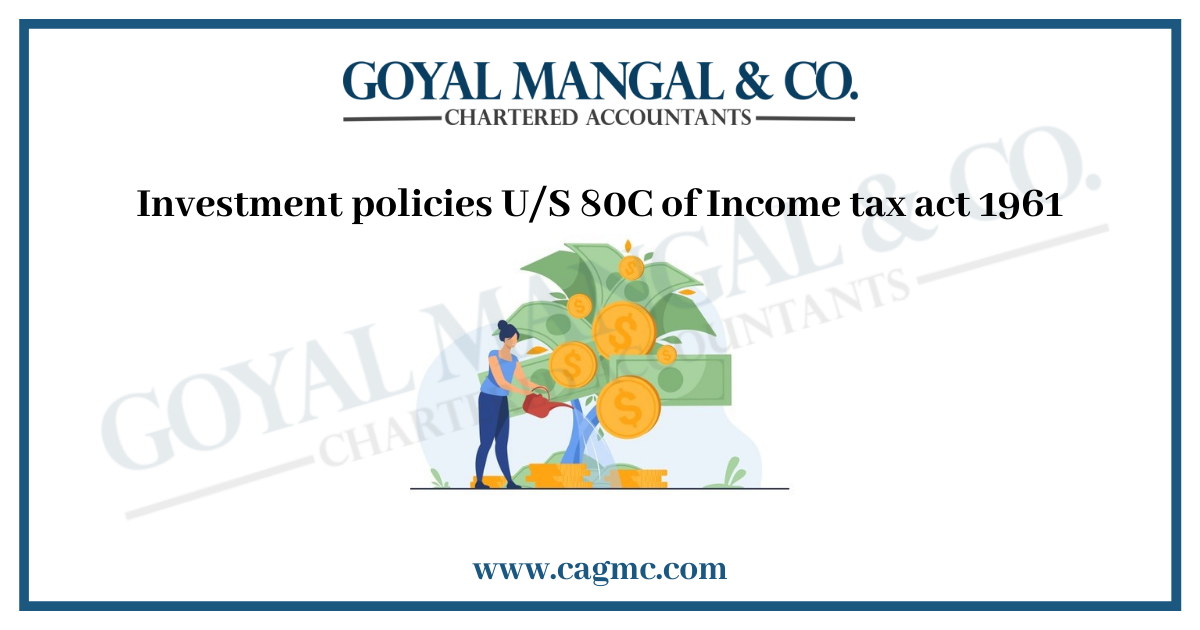
80C came into force with effect from 1st April, 2006.Section 80C provides deductions to individuals or a Hindu Undivided Family (HUF) for savings under income tax Act 1961.Section 80C enables tax payers to claim a deduction up to Rs 150,000 from their total income earned during F.Y for those who have made suitable investment in LIC, PPF, Mediclaim, and expenses incurred towards tuition fees etc.
Most of us are already well aware of the deduction available under section 80C of the Income-tax Act; 1961.The section offers various investment options to the taxpayer. Majority of people invest in life insurance policies, Public Provident Fund (PPF), equity-linked savings schemes (ELSS) etc. to avail this deduction, but there are several other options, too, which are worth considering. Deduction under section 80C is not only available for investments but also for specified expenditures made by the taxpayer. However, in order to claim the deduction for a particular financial year you need to invest/spend the deductible amount in that financial year itself.
Investment in Equity linked saving scheme (ELSS):
Equity Linked Savings Scheme or ELSS Funds is an open-ended Equity Mutual Funds that help you save and provide an opportunity to grow money. When almost all equity funds restrain you from paying long-term capital gains tax of 10.4% up to an amount of Rs. 1lakh, ELSS mutual funds offer tax benefit. That’s why these MF funds are also known as tax saving mutual fund schemes. By investing in ELSS, you can save tax up to Rs. 1.5lakh as per the Section 80C of IT (Income Tax) Act.
The only catch is here is best ELSS funds comes with a lock-in-period of 3years. That means every installment you make towards ELSS is subject to 3year-lock-in.
ELSS funds come with huge benefits. The most common reasons for investing in an ELSS fund are:
- Tax saving benefit is the prime reason to invest in best ELSS funds. As per the Section 80C of Income Tax Act 1961, you can avail tax benefits by investing in these funds up to Rs. 1.5lakh.
- It helps is build a habit of investing for a longer period. Although the other mutual fund schemes come with long-term investments, they are not bound with a fixed lock-in-period. On the other hand, with ELSS mutual funds, you need to invest for a minimum of 3 years. Moreover, by investing for a longer period, you can be exempted from paying taxes on returns earned.
- With a longer investment option, you can allow your funds to grow and redeem the benefits after 3 years. Since ELSS funds invest the money in equities, the possibility of earning good returns is higher.
- With ELSS mutual funds, you can inculcate saving habit in a systematic way. These funds allow you to start an investment with as low as Rs. 500 p.m. . This nurtures the habit of investing.
- Best ELSS funds allow you to invest in the stock market. Where a normal savings account gives a return of a maximum of 8%, by investing these funds you can reap the benefits of higher returns.
Investment in Unit linked Insurance Plan (ULIP)
ULIP is a combination of insurance and investment. ULIP Plan is a life insurance product that offers risk cover for the insured together with investment options to invest in some qualified investments like mutual funds, bonds, and stocks. As one integrated plan, the protection part and the investment part can be managed depending on the specific choices and needs.
Unit Linked Insurance Plan also allows its investors to switch their investment from debt to equity and vice-versa, without running from pillar to post and any worries of being charged.
Maturity proceeds from ULIP are also exempt from income tax. The Sum Assured or the minimum death benefit must be at least 10 times the annual premium. If this condition is not met, the benefit under Section 80C shall be capped at 10% of Sum Assured while the maturity proceeds will not be exempt from income tax.
From the Risk point of view Since ULIP (Unit Linked Insurance Plan) returns are directly linked to market performance and the investment risk in investment portfolio is borne entirely by the policy holder, one needs to thoroughly understand the risks involved and one’s own risk absorption capacity before deciding to invest in ULIPs.
A ULIP provides tax benefits as the premium or amount invested into the ULIP is exempted from tax under Section 80C. The amount received on maturity of this investment plan, is also tax exempted under Section 10(10D) of the Income Tax Act, 1961.
INVESTMENT IN TAX SAVING FIXED DEPOSIT:
Tax saver fixed deposit (FD) is a type of fixed deposit, by investing in which, you can get tax deduction under section 80C of the Income Tax Act, 1961. Any investor can claim a deduction of a maximum of Rs.1. 5lakh by investing in tax saver fixed deposits.
- Lock-in period of 5 years
- Interest earned is taxable
- Rate of Interest ranges from 5.5% – 7.75%


